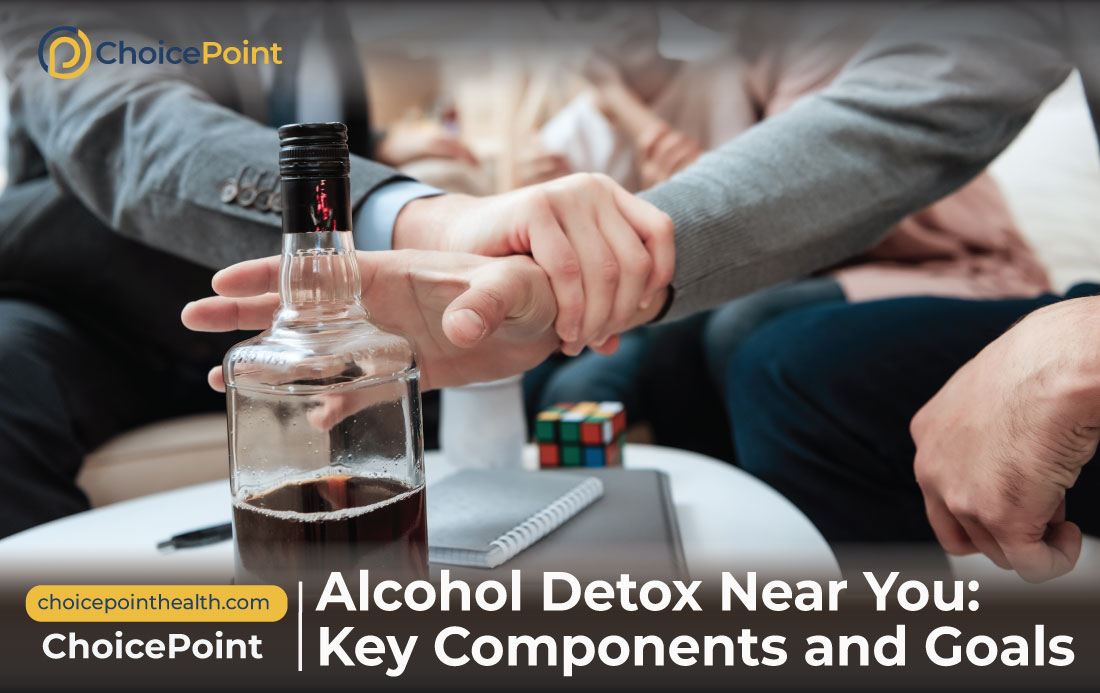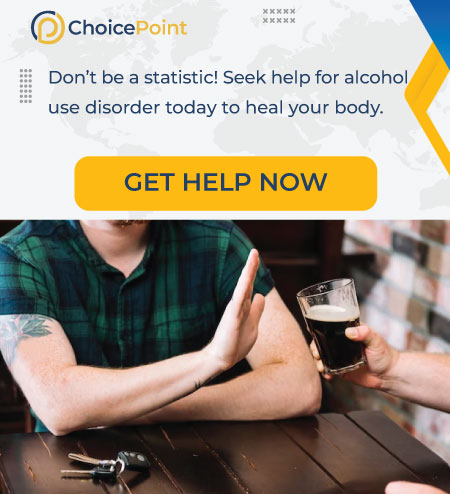Globally, alcohol is considered one of the leading risk factors for early death and disability. Alcohol is a silent killer that is responsible for almost 200 different types of diseases and injuries. Even when you want to stop taking alcohol, it is important to remember that the toxins stay in your liver for a long time. This necessitates the procedure of medical detox, which is a safe way to cleanse your liver. This guide will act as a guide for those searching for “alcohol detox near me.”
Table of Contents
Alcohol Detox and Liver
The liver metabolizes 15 to 25 milligrams of alcohol per hour on average. However, as alcohol consumption increases, liver metabolism is also affected, as alcohol induces direct toxicity in the organ. Detox is the first step in a long journey. Once you get rid of toxic substances via medical detoxification and abstinence, the liver can largely regenerate even after years of alcohol consumption.
Heal your liver by going via alcohol detox near you. Contact 844.445.2563 or fill in this form.
Key Components of Medical Alcohol Detox
In essence, detox helps clear the body of toxins that accumulate over time. It mainly comprised of the following components:
- Medical assessment and supervision
- Medication Administration
- Psychological Support
- Nutritional Diet
Alcohol consumption weakens the body overall, which is why a comprehensive approach is needed to offer holistic care.
1. Medical Assessment and Supervision
Before entering detox, doctors will assess the situation of the patient in question. A more tailored treatment can be created after the practitioner thoroughly evaluates it. This process entails checking:
- The history of abuse
- Medical history
- Overall health
- Blood tests
- Age
The process of detox can be started after the doctors deem it safe to start the procedure. Once the process begins, you will have constant medical attention.
2. Medication Administration
Since you stop taking alcohol during detox, withdrawal symptoms start hitting after a few hours. To manage withdrawal or any other issue occurring during detox, medications are administered. This is done to attain mental and physical stability to an extent. Alcohol withdrawal symptoms can be very severe at times, including:
- Delirium
- Hallucinations
- Fever
- Irregular heart rate or BP
- Depression
The medications used to treat severe withdrawal symptoms during detox may include:
- Diazepam (Valium)
- Chlordiazepoxide (Librium®)
- Lorazepam (Ativan)
Once the early phase of detox is completed, your doctor may prescribe you naltrexone, a medication that helps with alcohol cravings to encourage abstinence.
Medication-assisted treatment is the following treatment for alcohol use disorder. To learn more, book a consultation with our DEA-certified practitioners by calling 844.445.2563 or entering your information in this form.
3. Psychological Support
Withdrawal is not only physically painful but also mentally and emotionally quite daunting. A comprehensive detox entails getting psychological support from the practitioner or a professional counselor. Counseling during detox can be very effective as a person goes through a whirlwind of emotions. Below is what psychological support by a therapist may look like:
- Alcoholism may co-occur with other mental illness. A therapist can assess this to ensure the treatment plan is tailored.
- Patients may find emotional support from their therapists during a time of loneliness, stress, or depression.
- Detox results in life-threatening withdrawal symptoms like delirium and hallucinations. A therapist can provide medical support during this situation.
- Group counseling is also provided in some rehabs during detox. Patients may engage in group therapy and feel a sense of community and belonging.
Proper therapy should be started once detox is completed, as it furthers abstinence from alcohol.
4. Nutritional Diet
People addicted to alcohol usually have a poor and unbalanced diet. To improve overall health during detox, taking a rich diet is necessary. In inpatient alcohol detox centers, meals may also be included in the treatment plan. Even after undergoing outpatient detox, you can take meals rich in protein. Protein is responsible for energizing the body and repairing the damage done to it due to alcohol consumption.
Fruits and vegetables and healthy fats are also important. You may talk to your healthcare provider about foods to take during recovery. They can offer food according to your medical history and the body’s needs.

Health Risks of Chronic Heavy Drinking
Goals of Detoxing from Alcohol in Hospital
Even though detox is not a long-term treatment, it is an unskippable step when you are opting for treatment for alcohol use disorder. Following are the reasons why detox is necessary and the purposes it serves.
Managing Alcohol Withdrawal Safely
Withdrawal from alcohol is difficult in most situations. In some cases, withdrawal can even be life-threatening. For instance, experiencing delirium and seizures during withdrawal is highly likely, depending on the longevity of alcohol consumption.
- The medical staff keeps heart rate and hydration levels checked to ensure stability.
- Medications are provided to manage withdrawal symptoms
- Counselors are available to monitor the psychological situation keenly
One of the significant reasons why detox is carried out to manage withdrawal symptoms is because stopping alcohol at once can be difficult on the body.
Stabilizing Patient’s Condition
Patients with alcohol use disorder are not in their best health. The overall functionality is compromised when a person remains under the influence of alcohol. Detox provides a chance to stabilize the condition of patients to encourage abstinence or other treatments. After undergoing withdrawal safely, the next course of action can be prepared.
Preparing for Comprehensive Treatment
Treatment for alcohol use disorder does not stop with medical detox. AUD is treated via medication as well as behavioral interventions. Detox prepares the body for other essential treatments.
- Medications like naltrexone cannot be taken with alcohol in the system, so detox is necessary.
- Medication administration and therapy are both difficult to undergo when you are experiencing painful symptoms.
- Without toxicity in the liver, the metabolism works well for other treatments and overall health.
Due to the above-mentioned reasons, detoxing from alcohol safely is considered the first and most important step towards recovery.
Opting for “alcohol detox near me” can be one of the best decisions. Call us at 844.445.2563 or here to contact our practitioners if you want to undergo outpatient or inpatient detox.
Safe Alcohol Detox with ChoicePoint
Came here searching for “alcohol rehab near me?” You’re in the right hands. ChoicePoint takes pride in offering alcohol detox services. With our highly qualified staff, you can get appropriate medical help. You can undergo:
Detox is just the first step. ChoicePoint offers medication-assisted treatment programs and counseling services as well.
A simple phone call at 844.445.2563 or via this form can help you understand how and what to do if you need clarification.
Gist of What Alcohol Detox Near Me Looks Like
Alcohol detox is a necessary step for anyone seeking treatment for alcohol use disorder. It helps manage withdrawal symptoms safely, stabilizes the patient’s condition, and prepares them for comprehensive treatment. Medical assessment and supervision, medication administration, psychological support, and nutritional diet are the key components of medical alcohol detox.
Answering Your Additional Queries
Here is a quick guide to some additional commonly asked questions.
Can Alcohol Detox Kill You?
Withdrawal symptoms of alcohol include life-threatening seizures. When done without proper medication support, detox can be dangerous. However, undergoing detox in a medical facility is highly safe and effective.
Can You Drink Alcohol While Detoxing?
Drinking alcohol when you are detoxing defies the purpose of the procedure. Alcohol should not be drunk when you are undergoing medical detox. If you are detoxing at home, stopping alcohol consumption suddenly can be painful and fatal.
What is the Fastest Way to Detox from Alcohol?
Rapid detox is a fast way to detox alcohol from the body. It is a process in which the body’s natural process of detoxification is accelerated by sedating the patients and dispensing drugs like naltrexone. These medications assist the body in entering the state of detox.
How Long Does it Take an Alcoholic to Detox?
The duration of alcohol detox may vary from person to person as it depends on the longevity of alcohol consumption, age, metabolism, and withdrawal timeline.
Is it Good to Abstain from Alcohol?
Yes! Alcohol affects the gut, kidney, liver, and heart health. Putting a stop to alcohol consumption can result in a reduction of liver fat by 20%. Likewise, your immune system and overall health may also improve with the abstinence from alcohol.
Will My Liver Heal if I Quit Drinking?
While it depends on the extent of damage done to the liver, the liver may return to its normal functionality even after there is a long history of alcohol abuse. It is always good to give up on alcohol and experience sobriety.
Medical Disclaimer:
ChoicePoint aims to improve the quality of life for people struggling with substance use disorder and mental health issues. Our team of licensed medical professionals research, edit and review the content before publishing. However, this information is not intended to be a substitute for professional medical advice, diagnosis, or treatment. For medical advice please consult your physicians or ChoicePoint's qualified staff.
Simply desire to say your article is as surprising The clearness in your post is simply excellent and i could assume you are an expert on this subject Fine with your permission let me to grab your feed to keep up to date with forthcoming post Thanks a million and please carry on the gratifying work











Great post! Very informative and well-written. Looking forward to more content from this blog!Thank you